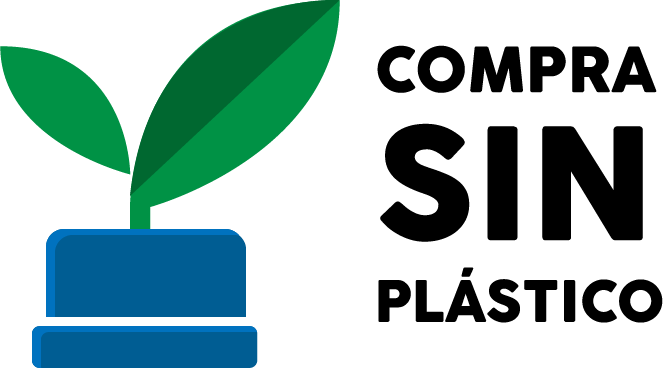El plástico es barato. Al menos en cuanto a su precio. Podemos conseguir vasos, platos, cubiertos, bolsas, encendedores, juguetes, cajas y todo lo que se pueda imaginar, por menos de un dólar. Ni siquiera hace falta comprarlo en grandes cantidades o pedirlo por alguna aplicación de ofertas como Wish, basta con ir al supermercado y comprobarlo.
Sin embargo, si lo pensamos un poco, resulta extraño que ello sea así. Es decir, el plástico es un derivado del petróleo, que debe ser extraído de las profundidades de la tierra con máquinas especializadas, solidificarse y granularse antes de llevarse a una fábrica, en donde se le dará un complejo tratamiento industrial. ¿Cómo es, entonces que llega a costar tan barato?
Antes de seguir debemos aclarar algunos conceptos: el precio, el valor y el costo…
Aunque guarden alguna similitud, no son lo mismo. El precio es la cantidad o monto asignado para la venta de un bien, producto o servicio. El valor, por otro lado, se refiere a la utilidad real de dicho bien. Y finalmente, el costo nos indica todos aquellos factores que fueron requeridos para fabricar y generar un bien.
Entonces ¿por qué no se ve reflejado un precio más acorde con los costes de producción del plástico?
Para comprenderlo, debemos señalar que la Economía (convencional) omite dos grandes factores involucrados en la producción de bienes y servicios. Por un lado, no toma en cuenta algunos recursos naturales que se dan por sentados (¡!) para poder fabricar un producto, tales como el agua, el aire y el espacio. La otra cosa que se echa de menos en los análisis económicos tradicionales son los subproductos y los residuos del bien que se genera.
Veamos dos ejemplos puntuales. En cuanto a la primera omisión (recursos) se viene a la cabeza la ganadería extensiva: no se toma en cuenta el daño ambiental de deforestar una parcela de bosque para criar ganado, tal y como ha ocurrido en el Amazonas (entre otros muchísimos lugares, como Guanacaste).
A la segunda gran omisión (residuos), las empresas que venden agua embotellada, no se preocupan por la generación de botellas plásticas, las cuales en su mayoría terminan en nuestros ríos y océanos. En ambos casos prima un criterio meramente mercantilista.
Es decir, no vemos reflejado su verdadero costo.
Ahora sabemos que, en realidad, el plástico no es nada barato. Por el contrario, su coste es elevadísimo: Se estima que entre 4,8 y 12,7 millones de toneladas de plástico acaban en nuestros océanos cada año y, al día de hoy, algunos calculan que hay 500 millones de toneladas contaminando nuestros mares. Esto es un verdadero problema ambiental y de salud pública, que afecta tanto a la vida marina, como a los seres humanos. Incluso, ya en términos dinerarios netamente: sólo en Europa, la contaminación por plástico le cuesta entre 259 millones y 695 millones de euros al sector turístico y pesquero combinados (Parlamento Europeo, 2018).
Ahora lo sabemos, con el plástico pasa lo que ocurre con otros muchos productos: no pagamos con dinero. Así como las tiendas de fast fashionnos ofrecen prendas con descuentos increíbles cada temporada, a costa de mano de obra en condiciones de cuasi esclavitud de personas al otro lado del mundo (mayoritariamente mujeres y menores de edad), el coste de la “conveniencia” de los productos plásticos desechables y de un solo uso recae sobre el medio ambiente y la salud de las personas.
Una cuestión de justicia.
Por supuesto, deberíamos apelar por un cambio en cuanto a la forma en que valoramos las actividades económicas. Ciertamente, las empresas deberían responsabilizarse por los desechos que generan, ya que en la actualidad únicamente reciben los beneficios económicos por su giro comercial.
También debería ponerse un límite en cuanto a la extracción de recursos para la producción de bienes y servicios. Por ejemplo, la expansión de los monocultivos beneficia a un puñado de ejecutivos, mientras que explota laboralmente a personas vulnerables, agota los suelos, contamina las aguas y acaba con la biodiversidad.
Para ello, requerimos cambiar la concepción económica tradicional por una Economía Ecológica, que entiende que todas las actividades humanas productivas se encuentran contenidas en la bioesfera, y tienen consecuencias directas sobre el equilibrio ambiental, la flora y fauna e, incluso, sobre nuestras posibilidades de subsistir como especie.
Esta tarea recae, tanto sobre el sector público, como el privado. Pero no podemos esperar a que ello ocurra. De hecho, muchos de los gobernantes actuales en diversas latitudes desconocen los efectos del cambio climático y reniegan de la ciencia disponible. Ante ello, debemos considerar estos factores a la hora de elegir nuestros representantes y apoyar políticas públicas.
Mientras tanto…
No podemos esperar a que el cambio llegue desde arriba. La acción social es vital, pero las elecciones personales tienen mucho más peso del que podríamos pensar. Ahora sabemos que el plástico está lejos de ser “barato”.
Como consumidores tenemos un gran poder. Si nos informamos sobre el origen y costo real de los productos que adquirimos, podemos elegir aquellos que tengan un mayor valor para nosotros y, además, que sean sostenibles en términos ecológicos. También podemos pensar dos veces antes de elegir un producto desechable, que usaremos unos instantes y luego rondará la Tierra por cientos de años.
Básicamente, se trata de comprender lo que Susan Freinkel expone de manera puntual y acertada: “tomamos sustancias naturales creadas a lo largo de millones de años, las convertimos en productos diseñados para un uso de unos pocos minutos y después se las devolvemos al planeta en forma de basura concebida para que no desaparezca jamás.” (Freinkel S., 2012)
Así que, a partir de ahora podemos analizar nuestras decisiones de consumo más allá de nuestro confort y comodidad, y tomar decisiones conscientes respecto a lo que metemos en nuestro carrito. Ahora sabemos que el plástico, no sólo no es barato, sino que pagamos el máximo precio por el: nuestro planeta.
